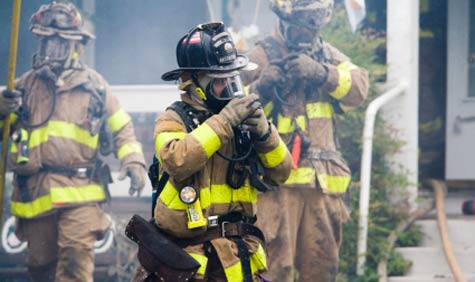BlackBerry is executing a fascinating turnaround; the strategy isn’t to recover the old BlackBerry as we know it, but to create a very different company — one tied more to the technology behind secure communications than any one specific hardware device. This is what BlackBerry always was at its core but that image was often obscured by the hardware drama. This change is incredibly timely as breach after breach is reported and Android in particular has been identified as a malware magnet and hackers’ paradise.
BlackBerry has just acquired AtHoc, a very specialized company with a communications platform specifically designed for crisis communications. This is what didn’t work on 9/11, largely because the systems in use at that time were relatively unreliable and didn’t talk to each other. Ironically, what did work were the old BlackBerry two-way pagers, so revisiting this area specifically is both strategically and historically important to the firm.
Let me explain.
Turnaround 101
One of the things that is consistent between Steve Jobs’ Apple and Thomas Watson Jr.’s IBM is that both men believed that you need to preserve the heart of the company and be willing to change anything else. The heart of BlackBerry really wasn’t the device, it was the unerring focus on security, communications reliability, and the fact that people could depend on the platform to work when almost nothing else did.
Where BlackBerry lost its way was when it tried to be a consumer device and chased Apple, but under CEO John Chen, it is fighting its way back to what it always should have been, the company you depend on when individual communications are critical.
I’m not really saying the hardware isn’t important, and certainly phones with keyboards have been proven to be more reliably accurate and safer (you can blind type on a keyboard phone) than screen phones. I’m saying that they are just one element of an effort to make sure critical communications are assured.
AtHoc and Crisis Communications
Crisis communications are incredibly critical and can, and do, include mixed media (voice, text and video) so that crisis managers, planners and first responders can be most effective during a very high-stress period. Any compromise in this communication could dramatically hamper the related effort resulting in, depending on the crisis, higher mortality rates, financial losses and outages, and potentially a far longer subsequent recovery time.
This is what AtHoc specializes in; it cuts across most device types including iOS, Android, PC (Mac and Windows), digital displays, radios, IP phones, sirens, fire panels and distributed speaker alert systems to provide comprehensive communications coverage during a crisis. Current customers include the U.S. Department of Defense, Homeland Security, and a variety of health care providers and industrial facilities that have to be prepared for a variety of potentially deadly events.
The firm is apparently already a significant distance down the path of using the concept of the Internet of Things to further its ability to report on and communicate massively during a crisis.
Wrapping Up: Turnaround Best Practices
When you are assuring the future of a firm, using the best practices from Steve Jobs and Thomas Watson Jr. is well advised. Apple was the most successful turnaround in history and IBM is the longest-surviving technology company. Their leaders both taught that you focus on what is core to the firm and be willing to change everything else in order to evolve and prosper. Chen’s execution with AtHoc is consistent with this strategy in that BlackBerry at its heart is about secure, reliable communications that people could bet their lives on. In many places that BlackBerry goes, people do.
I remember 9/11 and the fact that one of the only things that actually worked was those amazing, though soon outdated, BlackBerry two-way pagers. With AtHoc, Chen is taking a page from Jobs and Watson to return the firm to its historic roots, and this move could very well save our lives someday.
Rob Enderle is President and Principal Analyst of the Enderle Group, a forward-looking emerging technology advisory firm. With over 30 years’ experience in emerging technologies, he has provided regional and global companies with guidance in how to better target customer needs; create new business opportunities; anticipate technology changes; select vendors and products; and present their products in the best possible light. Rob covers the technology industry broadly. Before founding the Enderle Group, Rob was the Senior Research Fellow for Forrester Research and the Giga Information Group, and held senior positions at IBM and ROLM. Follow Rob on Twitter @enderle, on Facebook and on Google+




